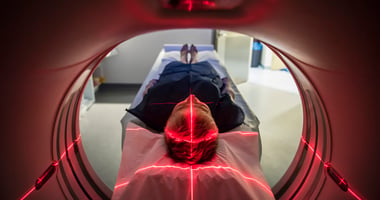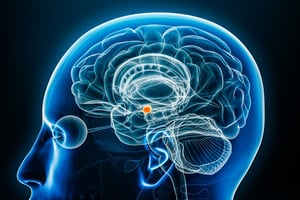Brain imaging may be able to predict patients with posttraumatic stress disorder (PTSD) who are...
Stressful Events Linked to Smaller Brain Size
Adverse life events can reduce the brain’s gray matter, according to a study published online January 2 in Biological Psychiatry.
Yale University researchers performed MRI scans on 103 healthy individuals, aged 18 to 48, and interviewed them about stressful events and adversity in their lives, like job loss, divorce, or the death of a loved one.
Both cumulative and recent stress were associated with reductions in several parts of the brain, especially the medial prefrontal cortex and the limbic regions. These areas are involved in stress, emotion and reward regulation, and impulse control and may be involved in depression, addiction, and other stress-related psychopathology. “The accumulation of stressful life events may make it more challenging for these individuals to deal with future stress, particularly if the next demanding event requires effortful control, emotion regulation, or integrated social processing to overcome it,” said lead author Emily Ansell, M.D., an assistant professor of psychiatry at Yale, in a statement.
Read more about the relationship between stress and brain changes in Psychiatric News.
Both cumulative and recent stress were associated with reductions in several parts of the brain, especially the medial prefrontal cortex and the limbic regions. These areas are involved in stress, emotion and reward regulation, and impulse control and may be involved in depression, addiction, and other stress-related psychopathology. “The accumulation of stressful life events may make it more challenging for these individuals to deal with future stress, particularly if the next demanding event requires effortful control, emotion regulation, or integrated social processing to overcome it,” said lead author Emily Ansell, M.D., an assistant professor of psychiatry at Yale, in a statement.
Read more about the relationship between stress and brain changes in Psychiatric News.
(Image : Argus/Shutterstock.com)






